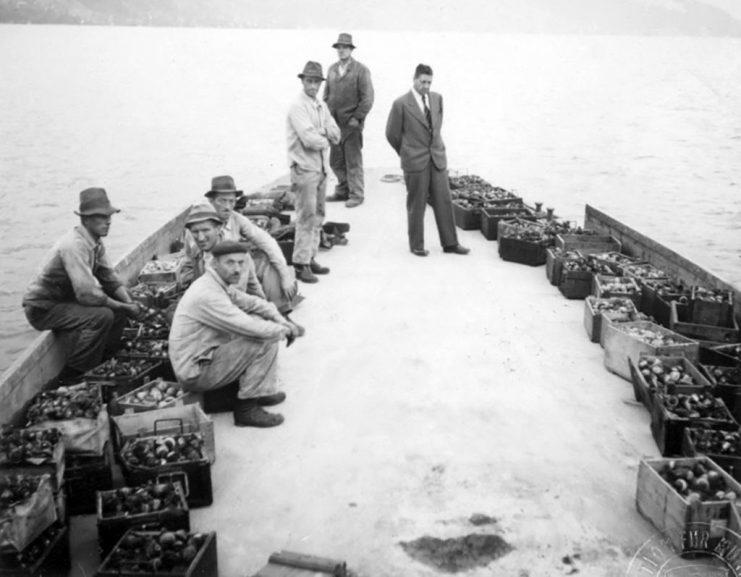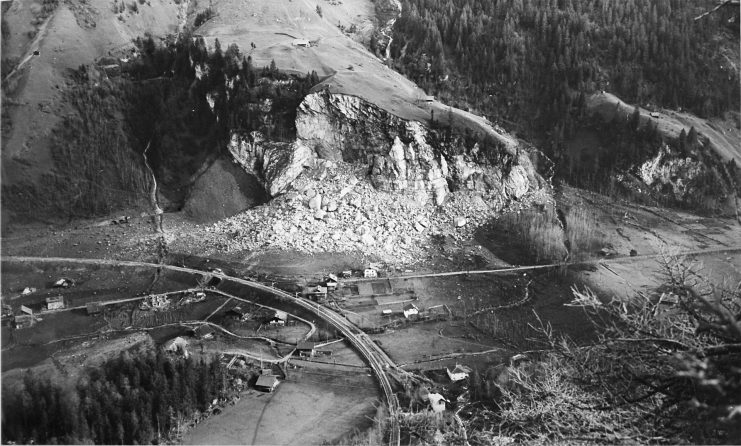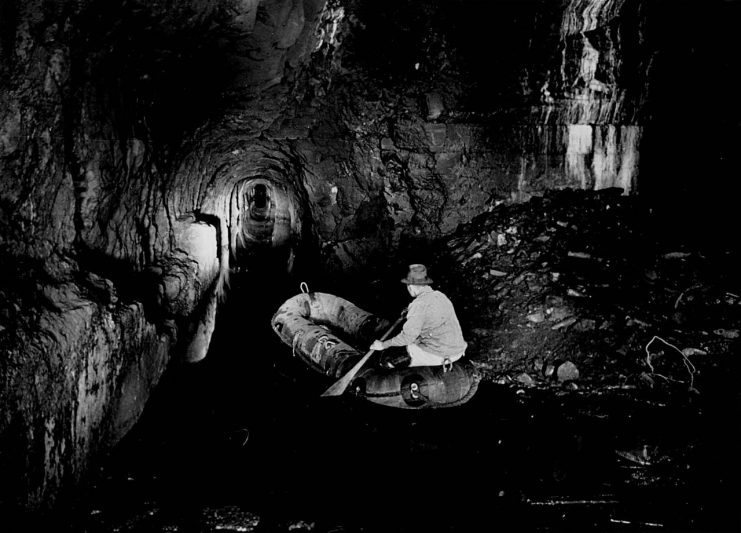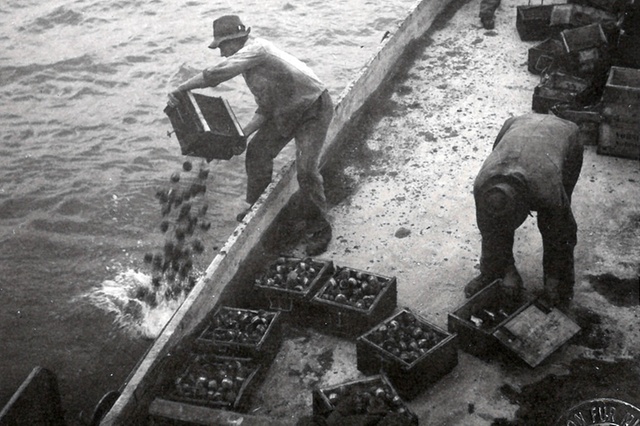WW2 bombs, grenades and other explosives that lie dormant at the bottom of Swiss lakes or under the Alps are still causing headaches for the Swiss authorities.
Added to that the 170 residents of the Swiss village of Mitholz, south of Bern, are facing a forced removal so authorities can clean up a crumbling ammunition dump from World War II.
The depot that is now crumbling was excavated out of the side of a mountain during World War II.
It is no longer safe, but I still packed with tons of explosives left over from the war.
Authorities have said that it could take ten or more years to clean up and safely dispose of the explosives stored in the magazine.

Residents of this sleepy little Swiss village are no strangers to the dangers posed by this ammunition magazine.
In 1947, an estimated 7,000 tons of explosives that were stored in the dump exploded inside the depot built into the mountain. In this explosion, nine people died, and the village sustained substantial damage.

Following this explosion, parts of the depot were rebuilt, and since then, residents of Mitholz have believed that they were safe.
Carolina Bohren, a spokeswoman for the Federal Department of Defence, Civil Protection and Sport, said that the people believed all was safe as the Swiss army had used the depot for pharmaceutical storage.
In 2018 a risk assessment was authorized, and everyone was shocked to find that the depot was in a much more dangerous state than everyone realized. Those undertaking the assessment estimated that the magazine still contains some 3,500 tons of ammunition and explosives.
Mitholz: Swiss town faces 10-year evacuation over arms dump https://t.co/5lXZGMiwoe
— Bellamy James ✝️🌊🌊🇺🇸❤️🧞♀️AAWOMAN ADOS (@SpiritofBellamy) February 28, 2020
Bohren said that the risk assessment recommended that the ammunition and explosives be wholly cleared from the depot. The evaluation also suggested that the residents be removed out of the village as the risk of explosion during the clean-up is very high.
Due to the amount of work required to uplift and relocate the entire community, work on the clean-up will not start until 2031.
Bohren explained, in an interview with CNN, that there was a myriad of details that still need to be finalized, but the government has plans to purchase all the property in the village and assist residents with finding new places to live.
World War II arms dump could force Swiss town to evacuate for 10 years #Mitholz #Switzerland #WorldWarII #WW2 #WWII https://t.co/TXiQP34Eqi
— The Pigeon Express – TPE (@PigeonExpress_) February 27, 2020
She went on to say that the plans had been announced this early, so residents have time to formulate their future strategies.
The government is working hand-in-glove with the community, and a survey has been conducted to find out what it is they desire.

Work on clearing these explosives will affect not only the residents of Mitholz but also those living in the surrounding towns.
Road and rail communication links need to be improved so that residents in the surrounding area are not cut-off, and business can continue as usual for the region.
Swiss Television reported on a press conference held by the Defence Minister, Viola Amherd. She said that the estimated cost of cleaning up the depot would run to an excess of 1 billion Swiss francs ($1.03 billion).
https://www.youtube.com/watch?v=R5nFhT2l2PM
Officials said that the explosives are buried in an unstable rock environment and would have to be removed a layer at a time.
Once the removal starts and authorities believe that it is simply too dangerous to remove the explosives, they may decide to bury them and leave then in situ.
Mechanic ‘Accidentally’ Fires Vulcan Cannon & Obliterates F-16 Sitting on the Runway
Hanspeter Aelling, the manager of this project, said that this would be a last resort as they have no desire to leave their descendants a ‘toxic gift.
